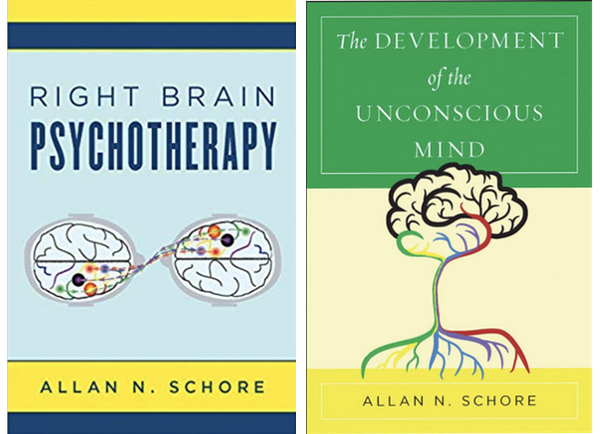We are excited to announce that The Norton Series on Interpersonal Neurobiology is releasing two upcoming books by Allan Schore in March 2019.
Right Brain Psychotherapy
“The latest groundbreaking, interdisciplinary work from one of our most eloquent and significant writers about emotion and the brain. An exploration into the adaptive functions of the emotional right brain, which describes not only affect and affect regulation within minds and brains, but also the communication and iterative regulation of affects between minds and brains. This book offers evidence that emotional interactions reflect right-brain-to-right-brain effective communication. Essential reading for those trying to understand one-person psychology as well as two-person psychology (relationships, whether clinical or otherwise)” (Norton, 2019)
READ MORE OR PREORDER HERE.
The Development of the Unconscious Mind
“An exploration of how the unconscious is formed and functions by one of our most renowned experts on emotion and the brain. This book traces the evolution of the concept of the unconscious from an intangible, metapsychological abstraction to a psychoneurobiological function of a tangible brain. An integration of current findings in the neurobiological and developmental sciences offers a deeper understanding of the dynamic mechanisms of the unconscious. The relevance of this reformulation to clinical work is a central theme of Shore’s other new book, Right Brain Psychotherapy.” (Norton, 2019)
Some readers may also appreciate these articles from the GAINS Archives. Please log in to access them.
The GAINS Anniversary Interviews: Allan Schore, Interviewed by Orli Peter READ IT HERE.
The Clinical Expert: A Model from the Perspective of Regulation Theory, Allan N. Schore, PhD [originally published in the Summer 2007 edition of Psychologist-Psychoanalyst, the newsletter of the Division of Psychoanalysis of the American Psychological Association] READ IT HERE.

